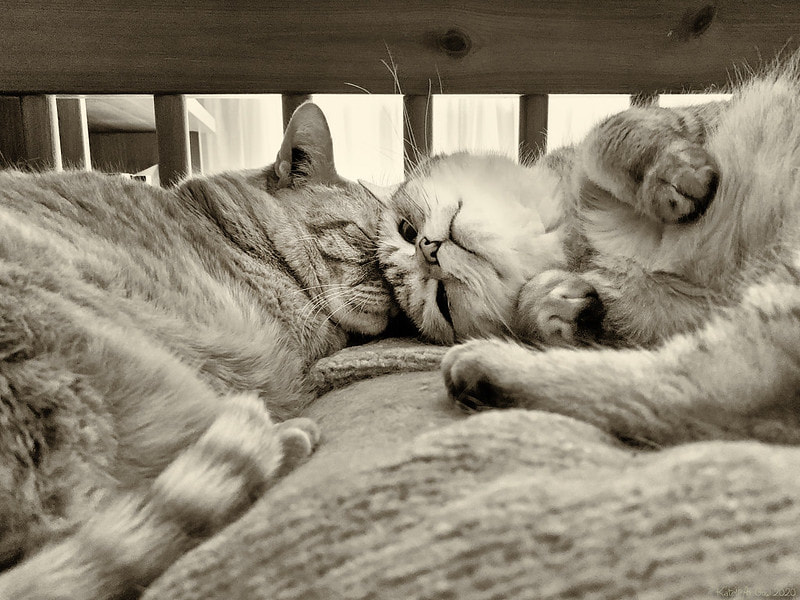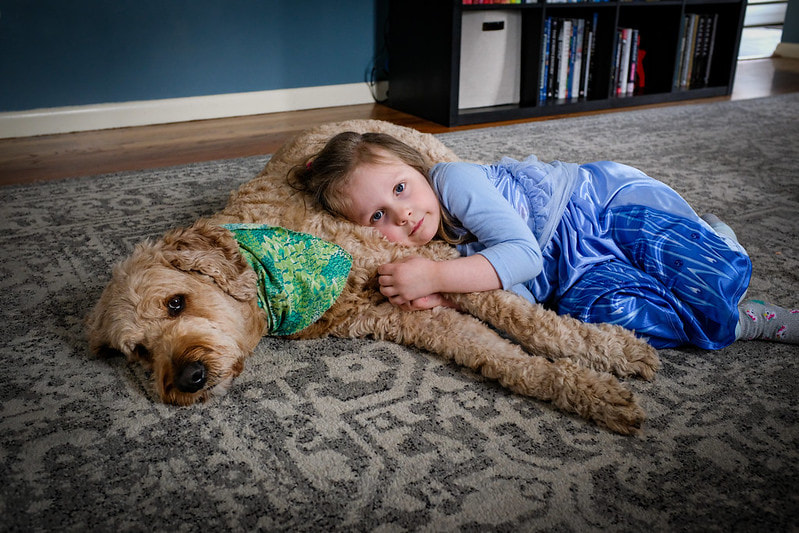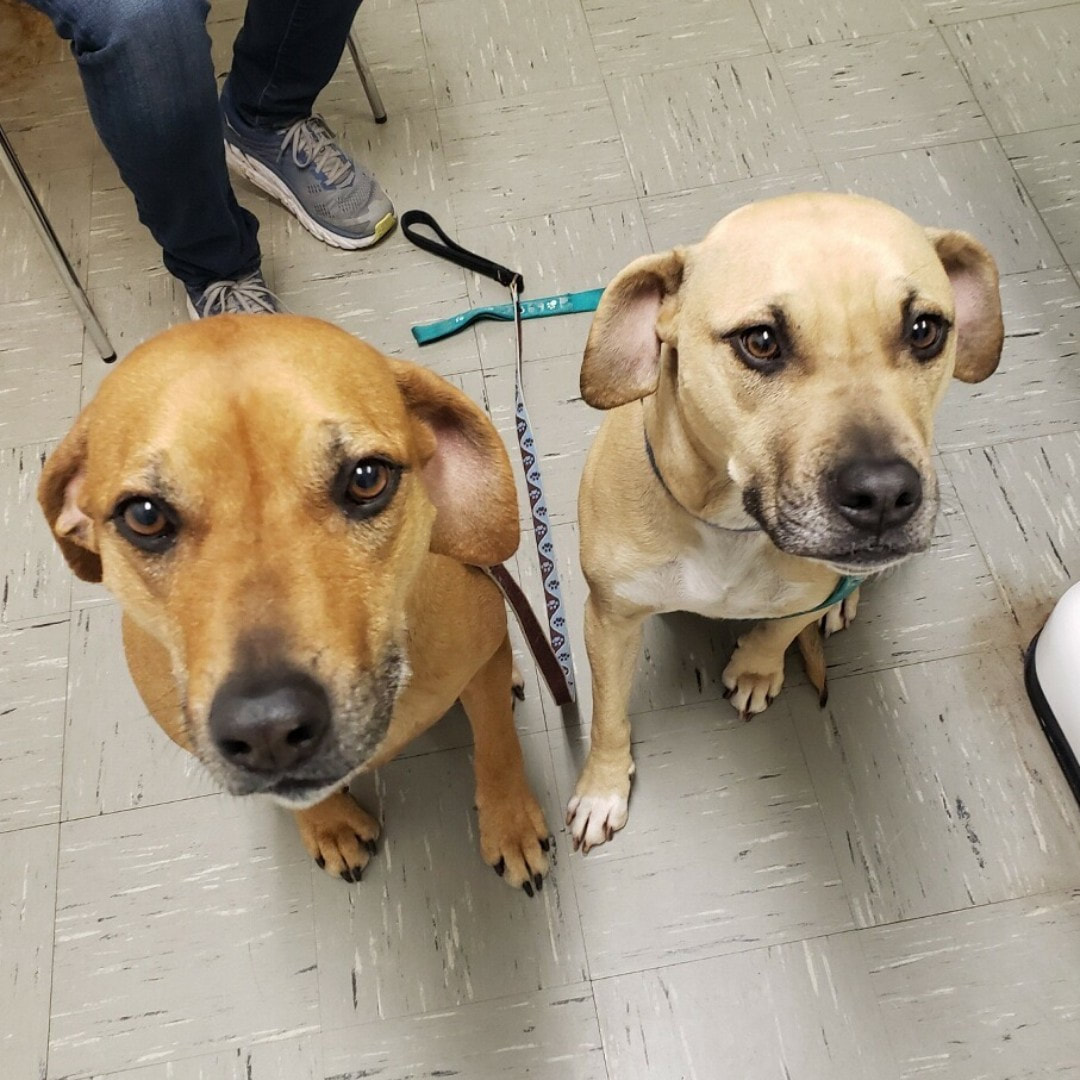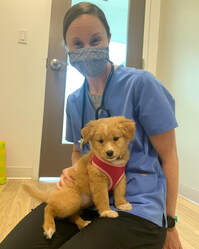 Hurricane season in New England lasts from June to the end of November, but emergencies also come in less predictable forms throughout the year, such as house fires and tornadoes. When disaster strikes, your pets are almost completely dependent on you to survive. Follow Concord Animal Hospital's 5-point emergency checklist to keep your pets safe during an emergency. 
It's the time of year to write our New Year's resolutions. This year lets get our pets in on the act! 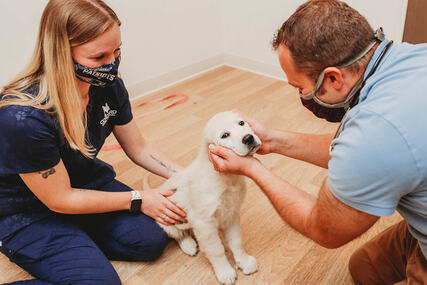 How COVID-19 is impacting pet health Pet obesity was already on the rise before the pandemic, with over half of all cats and dogs in the U.S. overweight or obese. This problem has intensified along with the pandemic according to a survey from Hill's Pet Nutrition, conducted in partnership with Kelton Global. One third of pet parents with an overweight pet say their pet became overweight since the start of the pandemic. Many of us are home all day, continually giving pets treats and exercising less. All of this comfort and indulgence can put your pet at risk for serious health issues. According to CBS News, common obesity-related conditions for dogs and cats include arthritis, bladder and urinary tract disease, diabetes, as well as excess stress on the heart and joints. How can you tell if your pet is overweight? As Dr. Wilson, a veterinarian at Concord Animal Hospital (CAH), explains, a good indicator of whether your pet might be packing some extra pounds is to take a close look at your cat or dog. “If you see their ribs, they are too skinny. If you can’t see their ribs and you can’t feel them with your hands when you rub the side of their chest, your pet may be overweight.” How can help your pet maintain a healthy weight? You can dramatically improve your pet’s quality of life and life expectancy—not to mention, avoid additional veterinary bills—when you help your cat or dog maintain a healthy weight. We can help you do this in 2021! Dr. Wilson has five tips for pet owners: Concord Animal Hospital’s 5 New Year's resolutions to keep your pet’s weight in check: 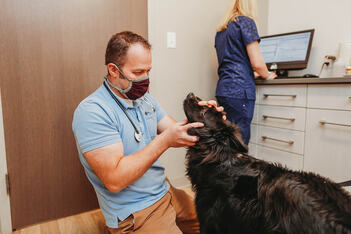
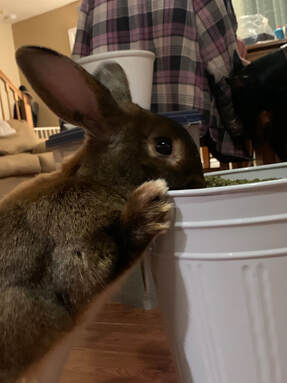
Wishing you all a very healthy and happy 2021!
New data indicates that SARS-CoV-2, the coronavirus that causes COVID-19, can infect cats, though it still doesn’t appear to infect dogs. It’s still unclear whether cats can spread the virus to people, so we urge caution but not alarm. With the first case of an animal in the US testing positive for SARS-CoV-2, the coronavirus that causes COVID-19, pet owners are understandably concerned. Two days ago a tiger in a zoo in New York City was confirmed to be infected with COVID-19. Outside of the US there have been a handful of reported SARS-CoV-2 positive pets. The American Veterinary Medical Association (AVMA) lists two dogs in Hong Kong, one cat in Hong Kong, and one cat in Belgium that have also tested positive for SARS-CoV-2.
COVID-19 in Dogs and Other Animals Data continues to indicate that dogs aren’t really susceptible to the infection. The same goes for pigs, chickens, and ducks, all included in the study published in Nature. However Ferrets are highly susceptible to COVID-19.
Keeping pets safe We urge an abundance of caution to protect pets. If you are ill with COVD-19, restrict contact with your pet and have another member of the household feed and care for your pet if possible. The US Center for Disease Control advises that if “you have a service animal or you must care for your pet, wear a facemask; don’t share food, kiss, or hug them; and wash your hands before and after any contact with them.” Don’t share bedding or any dishes, towels, drinking glasses with other people or pets in your home. While we urge caution, there isn’t any reason a pet would need to leave a home where someone is infected with COVID-19 unless no one in the home will be able to care for the pet appropriately. It’s a good idea to have a two-weeks supply of your pet’s food and medicines in case you are diagnosed with COVID-19, are quarantined or are self-isolating and can’t leave your home. Please continue to reach out with questions and concerns. We are open and here for you and your pet!
Concord Animal Hospital’s team of veterinarians gets questions about CBD and pets almost every day – here’s their take CBD and your pet.
What is CBD? CBD, or cannabidiol, is a product of both the cannabis and hemp plants. It is only legal when it is derived from hemp – any product for sale containing CBD should not be derived from cannabis. CBD does not have psychoactive properties. THC (delta-9-tetrahydrocannabinol) is the psychoactive component of cannabis, or marijuana. What research has been done on CBD and pets? Not enough! “At this point there are very few published results that determine benefits of CBD for pets or how it interacts with other medications or supplements,” notes Dr. McCullough. “Not only have benefits not been confirmed by the research, but proper dosing and CBD toxicity levels have not been defined.” There is anecdotal evidence that CBD may have benefits for pets. These claimed benefits include reducing inflammation, stimulating appetite, reducing anxiety, and controlling seizures. There are studies underway and all in the veterinary community eagerly await the results. Pet due for a visit? Book an appointment today!
What is Concord Animal Hospital’s stance on CBD? Our team of veterinarians suspects that there CBD does have health benefits for pets. However, there are significant knowledge gaps in the science, safety, and quality of CBD for pets. Until there are published studies on the safety and efficacy of CBD and standardized dosing, we do not recommend that our clients administer CBD products to their pets.
Though we don’t recommend CBD products, we want our clients to be open with us about CBD products that they are administering to their pets and to feel that they can ask us questions about CBD. We’ll discuss CBD for your pet to the best of our knowledge. We’re your partner in your pet’s healthcare and want you to feel that you can be transparent with us!
|
|
OFFICE HOURS:
Monday-Friday: 8:00 am to 6:00 pm Saturday: 8:00 am to 12:00 pm |
CONTACT INFORMATION:
Concord Animal Hospital 245 Baker Avenue Concord, MA 01742 Phone: (978) 369-3503 Fax: (978) 371-9748 [email protected] |
JOIN OUR PACK!
Sign up for our monthly newsletter, the Paw Press for hospital news, pet care tips and cute pet photos! |
Copyright © 2022

